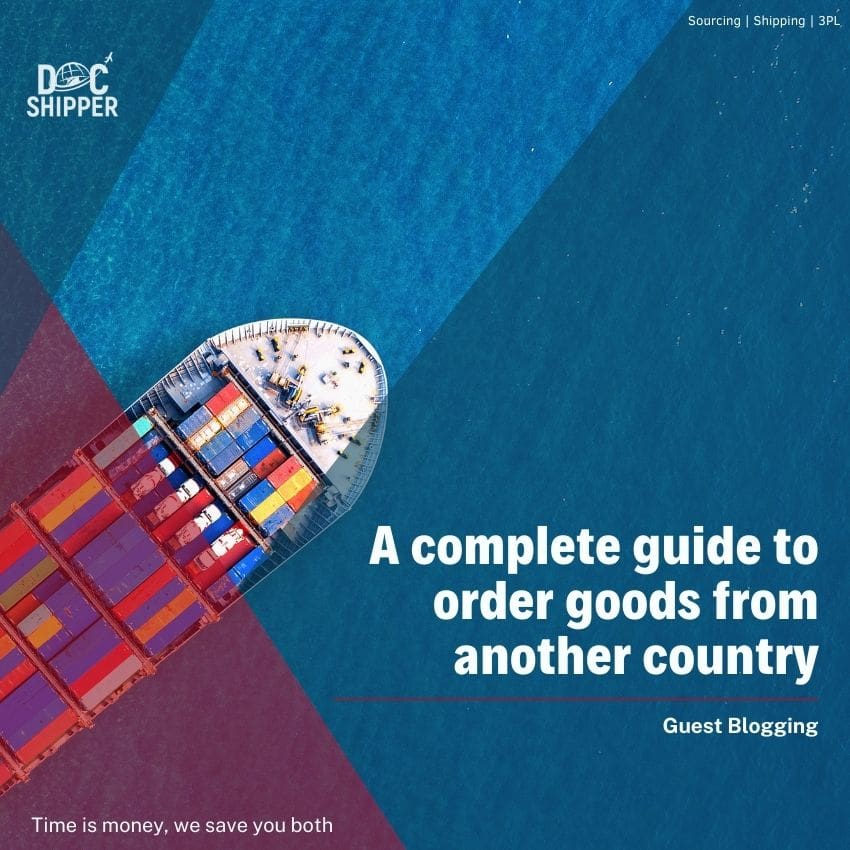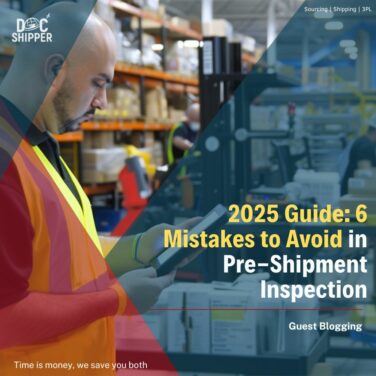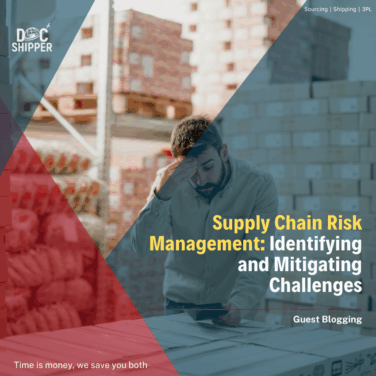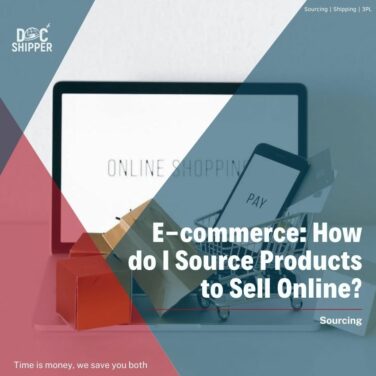With the growth of global markets today, ordering goods from all across the world is no longer an unthinkable or expensive affair. Today, almost every individual and business are ordering products from overseas if they are unavailable in the domestic market.
Quiz: What's the best approach to import products from another country?
Question 1: What's the volume of products you plan to import?
Question 2: How quickly do you need these products?
Question 3: Do you have experience with international trade?
Your Recommended Approach:
Whether it be the steel and iron industries, importing goods can be an unavoidable necessity for every business. And e-commerce websites have made it even easier for people to attain goods from other countries with affordable international shipping prices. Electronic items, fashion apparel, beauty products, cosmetics, and toys make up for the largest section of imported goods in general.
But before you buy goods from another country, there are certain risks and tips that you need to be aware of. While the internet can easily overwhelm you with too much unnecessary information, here in this article, we have tried to summarize the entire process for you.
DocShipper Alert
DocShipper Alert : DocShipper is sourcing company based in Hong Kong, that helps small businesses and individuals like you buy and import safely from Asia, and especially from China. Send us the product you’re looking for by filling out this form or get your questions answered immediatly by calling our experts.
What are the basic steps for ordering goods from another country?
💡 ATTENTION: 78% of first-time international buyers skip product verification, resulting in $4.2 billion in losses annually. Professional importers use the « 3-point verification system »: request physical samples, verify supplier credentials with trade bureaus, and conduct video inspections before payment. A DocShipper client avoided a $32,000 loss by identifying counterfeit electronics through this method. Let’s now examine what documentation you’ll need for a smooth import process.
DocShipper Conseil
78% of first-time international buyers skip product verification, resulting in $4.2 billion in losses annually. Professional importers use the « 3-point verification system »: request physical samples, verify supplier credentials with trade bureaus, and conduct video inspections before payment. A DocShipper client avoided a $32,000 loss by identifying counterfeit electronics through this method. Let’s now examine what documentation you’ll need for a smooth import process.
The basic steps that you need to follow to order goods from another country are as follows:
Know your goods properly
Though it sounds simple, this is, however, the most important step of your entire importing process. Before buying anything, it is always essential that you run a thorough check of your product. Similarly, when you are ordering goods from another country, the need is even more vital.
Starting from knowing what materials are used to manufacture your chosen product to even the kind of packaging that it will be encased in, you need to know it all. Much like having all your ingredients on the kitchen slab before cooking, you must also check every little part of your goods and their package before ordering them.
Product specifications When buying products from another country, documenting precise specifications prevents costly mistakes and shipping complications. DocShipper recommends creating a detailed product checklist before finalizing any international purchase.
- Dimensions and weight (exact measurements with packaging)
- Material composition and quality standards
- Regulatory compliance requirements for your destination country
- Product labeling and documentation needs
Request product specification sheets from suppliers and verify all details match your requirements before proceeding with your international order.
Choosing suitable sellers and a suitable geographical location to buy goods
Based on your needs, identify suitable sellers from the desired geographical location to order your product from. More often than not, several sellers are found to be selling the same kind of product.
Under such circumstances, you need to choose the one that best meets demands. From proper customer service facilities to reliable delivery procedures, identify and inspect a seller who satisfies all your needs.
Following the selection of a suitable seller, you must decide on a particular geographical location from where you can order your goods. While doing this, keep in mind that different countries have their own export/import regulations, taxation, and other formalities.
These regulations have a dramatic impact on deterring the cost that you have to pay as you buy goods from there. While some countries will offer you a certain product at a higher rate, other countries can provide it to you at a lower rate.
Supplier location impact Strategic supplier selection based on location can significantly reduce costs when buying products from another country, particularly through regional trade agreements and optimized logistics routes.
- Countries with free trade agreements with your destination
- Proximity to major shipping hubs or ports
- Regions with specialized manufacturing expertise
- Areas with lower labor or production costs
According to WTO (07/2022), trade agreements can reduce tariffs by an average of 10.8 percentage points. Consider these geographic advantages when selecting international suppliers.
Check for customer support options in your seller
What if you need to cancel your order? What if you need to change your shipping address? Or what if you have an urgent query regarding your order? All these doubts can only be cleared by a responsive customer care service on the side of your seller.
Starting from the availability of live chat options to even the presence of email channels for inquiry, checking for customer support options is vital.
Support evaluation criteria Effective customer support becomes crucial when buying products from another country due to potential language barriers, time zone differences, and complex shipping issues.
| Support Type | What to Look For |
| Response Time | 24-48 hour guarantee, especially across time zones |
| Communication Channels | Multiple options (email, chat, phone) with language support |
Test a supplier’s responsiveness with pre-purchase questions before committing to international orders.
Abstain from paying more the 30% of the product value as a deposit
Often it is found that sellers try to make their customers pay more than 30% of the product value even before the product is manufactured. Make sure to stray away from this at all costs. Don’t worry, for you will still exercise power over the seller by paying a 30% deposit.
You should only pay the rest of the money after your goods have passed the Finished Goods Inspection and the Container Loading Inspection. Only after getting satisfactory reports should you pay the necessary due amount.
Deposit protection strategies When buying products from another country, limiting initial deposits helps protect against potential fraud while maintaining leverage to ensure quality standards are met.
- Request milestone-based payments tied to production stages
- Use escrow services for large transactions
- Document all payment terms in a formal purchase agreement
- Consider trade credit insurance for significant orders
According to ICC (05/2022), structured payment terms reduce international trade disputes by approximately 27%. Negotiate payment schedules that protect both parties while minimizing upfront financial exposure.
Choose the correct payment method
With the rapid growth and development of the global markets, online frauds and hacks have also increased consequently. Nowadays, even hackers have devised more effective methods to seamlessly hack into your system and retrieve vital data.
It, in turn, makes it crucial for you to choose a safe and reliable mode of making your payment. Check the modes of payment that are offered by your seller. Also, check if a certain mode of payment offers you certain extra benefits and security before selecting a preferred mode for yourself.
According to many experts, it is a wise decision to choose such a mode of payment that isn’t directly linked to your bank account. By doing so, you can give yourself an extra layer of protection from online frauds and money laundering.
Secure payment methods Selecting appropriate payment channels when buying products from another country balances security, cost, and convenience while providing transaction protection.
| Payment Method | Security Features |
| Letters of Credit | Bank verification of shipping documents before payment |
| Secure Payment Platforms | Buyer protection policies and dispute resolution |
The European Commission provides guidelines on secure international payment practices to protect against financial fraud.
Choose your shipping address and couriers cautiously
Most international sellers are seen to rely on internationally-known courier services such as DHL. However, some sellers also rely on a freight forwarding service to have their products delivered to the required address. Such delivery services are based on varied shipping modes based on either the cost or quality of goods.
Other than these, there are still sellers who rely on the postal systems of their own country and that of the recipient country. Based on what delivery model is adopted by your seller, there would be different policies, different estimated delivery times, and different recipient requirements. Alongside checking all these factors, it is also essential that you review your delivery address before placing the order.
DocShipper Advice
DocShipper Advice : To avoid unpleasant surprises, always do your research before meeting with your supplier/manufacturer. There are many scammers on the popular B2B marketplaces, the prices aren’t real and there is no guarantee that you’re going to get the product you want. DocShipper will help you find the foreign manufacturer wholesaler that you’re looking for. Ask our specialists everything now or fill out our form to tell us about your needs.
Logistics optimization Strategic shipping choices when buying products from another country can significantly impact delivery timelines, costs, and customs clearance efficiency.
- Compare multiple courier services for rates and transit times
- Consider consolidation options for multiple purchases
- Verify last-mile delivery capabilities in your region
- Assess customs clearance assistance provided by carriers
According to UNCTAD (11/2022), carrier selection can impact total landed costs by up to 23% for international shipments. Evaluate all logistics factors before finalizing your international purchase arrangements.
What are the documents you need to import goods from another country?
⚠️ IMPORTANT: 67% of importers submit incomplete or incorrect documentation, resulting in an average delay of 21 days and $3,800 in demurrage fees per shipment. In February 2024, an electronics importer faced $27,500 in penalties due to a simple HS code misclassification on their Bill of Entry. The safest approach: have your documentation pre-reviewed by a customs expert 14 days before shipping. Now, let’s explore the various charges you’ll need to budget for.
67% of importers submit incomplete or incorrect documentation, resulting in an average delay of 21 days and $3,800 in demurrage fees per shipment. In February 2024, an electronics importer faced $27,500 in penalties due to a simple HS code misclassification on their Bill of Entry. The safest approach: have your documentation pre-reviewed by a customs expert 14 days before shipping. Now, let’s explore the various charges you’ll need to budget for.
Import clearance can be a very hectic process for you. It is difficult to point out the exact documents that you need for import clearance of your goods, as they vary based on your product. But some common documents are essential for import clearance.
Different countries exercise their policies and formalities when it comes to importing clearance.
For custom clearance procedures for your imported goods, there are certain legal documents, common documents, and even some specific documents that are needed. Let us look at the commonly required documents for importing goods.
Bill of Entry
It is a legal document filled and signed by a Customs House Agent (CHA) or an Importer. It is generally regulated by the Customs Department or the Reserve Bank. You must fill it up within 30 days of the arrival of your shipment at the location of the customs.
Commercial invoice
It is one of the most important documents asked for during customs clearance. It includes information regarding your order like product description, selling price, packaging costs, weight or volume of the goods, etc.
A representative at the customs department will handle and match all this information with your order(s) and decide whether to clear your order or not.
Customs Packing List
The Customs Packing List provides you with the entire list of items that are included in the given shipment. It can be matched easily with the invoice by any concerned party for further clarification regarding the order.
This list is usually sent along with the international shipment and makes it easy for the transportation companies to have an idea of what they are shipping.
Bill of Lading
It is a legal document that is issued by the carrier to the shipper. It stands testimony to the contract for the transport of the necessary goods. It also provides you with the required information about your product, like quantity, kind of product, or even the shipping destination.
This document is often treated as a receipt of the shipment at the destination port, wherein it is signed by the customs clearance officer. No matter what kind of goods you are importing, this is a mandatory document. It is further essential that it is signed by the authorized representative from the carrier, shipper, and the recipient.
Import License
In some countries like India, not all goods can be freely and exclusively imported. In such cases, an import license is a much-needed permission that is granted by the government. This license allows you to participate in importing goods from another country without any problem. To issue this license, you simply need to apply to the licensing authority.
Certificate of Insurance
The Certificate of Insurance helps in the proper verification of the goods in question. Based on this certificate, the goods are then verified in terms of whether or not the selling price is inclusive of the insurance.
It further even helps in ascertaining the exact value to thereafter determine the import duty aggregate.
Letter of Credit or LC
This document is generally shared by the importer’s bank itself. It simply states that the importer will make a payment of a specified sum of money to the exporter to complete the transaction process.
It is thereby based on the terms of payment between the importer and the exporter that the order is dispatched. The order is finally dispatched by the seller once you have the Letter of Credit.
RCMC Registration cum Membership Certificate
To avail of any kind of benefit(s) at the time of customs clearance, the RCMC Registration cum Membership Certificate is needed. These benefits fall under the schemes that are underlined by the FTP or any of the EPCs; the exporter or importer in question needs to have this document.
In the case of India, this certificate is generally issued by the Export Promotion Councils of India.
GATT/DGFT Declaration
During the process of customs clearance, you also need to file a GATT and DGFT declaration. This document is filed based on the terms provided in the General Agreement on Tariff and Trade. Check out the following requirements to file your GATT and DGFT Declaration:
- Customs valuation of your imported goods which are subjected to duties and taxes
- Three copies of your declaration
- Retention of the form along with the fully detailed customs declaration for a minimum period of 3 years
- You, as the declarant, need to correctly and accurately fill-up the form, providing all the necessary details.
Technical Write-up (only for specific goods)
A Technical Write-up is only needed in the case of a few goods. This document stands to provide the features or usage of the imported goods. It helps in ensuring the proper handling of the goods during the process of shipment.
This document helps the necessary authorities to identify the product better, estimate its value-added costs and ensure the proper delivery of the same.
Industrial License (for specific goods)
This document is also needed in case of importing certain specified commodities. It can be used as proof to avail of any kind of import duty benefit that may be levied on the given product. To avail such benefits, a copy of the industrial license needs to be mandatorily produced at the time of customs clearance.
These are some of the documents that you need to have with you at the time of customs clearance.
Comparison of popular methods for buying products from another country
⚠️ IMPORTANT: 93% of new importers focus solely on product price, ignoring the critical “total landed cost” calculation. This oversight led to an average 42% budget overrun in 2023 international purchases. A recent case study showed a US retailer’s $12,000 Chinese furniture order ultimately cost $21,400 after duties, taxes, and logistics fees. Understanding your complete payment obligations is essential before finalizing any international purchase.
When buying products from another country, you have multiple options, each with distinct advantages and challenges. Understanding these differences is crucial for making informed decisions.
| Method | Speed | Cost | Risk Level | Best For |
|---|---|---|---|---|
| Direct from manufacturer | Slow (30-60 days) | Lowest | High | Bulk orders, customization |
| B2B marketplaces (Alibaba, etc.) | Medium (14-30 days) | Low-Medium | Medium | Small businesses, multiple suppliers |
| International e-commerce (Amazon, eBay) | Fast (7-14 days) | Medium-High | Low | Individual items, convenience |
| Sourcing agent services | Medium (21-40 days) | Medium | Low | Quality assurance, first-time importers |
According to a 2023 Statista report, cross-border marketplaces have become the preferred method for 64% of first-time international buyers, while 27% of experienced importers prefer working directly with manufacturers to maximize margins.
What are the charges I need to pay?
ℹ️ INFORMATION: The published import charges typically represent only 60-70% of total costs. Hidden fees like terminal handling charges, customs inspection fees, and weekend surcharges can increase your budget by 35-45%. DocShipper’s comprehensive cost calculator incorporates all 27 potential fee categories = zero surprise charges for clients. One e-commerce client saved $15,700 in unexpected fees on a single container shipment from China. Let’s wrap up with key conclusions about ordering goods from another country.
DocShipper Info
The published import charges typically represent only 60-70% of total costs. Hidden fees like terminal handling charges, customs inspection fees, and weekend surcharges can increase your budget by 35-45%. DocShipper’s comprehensive cost calculator incorporates all 27 potential fee categories = zero surprise charges for clients. One e-commerce client saved $15,700 in unexpected fees on a single container shipment from China. Let’s wrap up with key conclusions about ordering goods from another country.
Looking for a Reliable
Sourcing Partner?
We handle the entire sourcing process, supplier research, negotiation, production, and inspections, so you can focus on what matters most: growing your business.


Looking for a Reliable Sourcing Partner?
We handle the entire sourcing process, supplier research, negotiation, production, and inspections, so you can focus on what matters most: growing your business.
Importing goods from another country comes at a cost. Alongside paying the price of your goods, there are other charges that you need to incur at the same time. Let us take a look at what they are.
Shipping charges
Even though domestic e-commerce websites mostly offer free delivery services, with international deliveries, however, you need to pay shipping charges. Based on various factors like weight, dimensions, origin-destination, duties and taxes, insurance, etc. the shipping charges are calculated.
Customs Duty
In case you are importing goods from another country for your usage, you need to incur a customs duty of approximately 10%. Other than this, you would also have to pay other taxes that are imposed by your government.
While in some cases, the seller might impose the local taxes to be paid in your country; some others might also collect customs duty following the delivery.
Currency conversion
Online websites will generally enlist the price of their products in the local currency. Now, if you live in India and are buying goods from the US or UK, you would have to incur the currency conversion rates too. Unfortunately, the rupee is not a very strong currency in terms of global markets, and thus currency conversion rates can be pretty high.
Working with a sourcing agent vs. direct importing
When buying products from another country, particularly from Asia, working with a professional sourcing agent provides significant advantages over direct importing:
| Aspect | Direct Importing | With Sourcing Agent (like DocShipper) |
|---|---|---|
| Supplier verification | Limited, depends on your research skills | Comprehensive background checks and factory audits |
| Quality control | Difficult to manage remotely | On-site inspections by local professionals |
| Communication | Language barriers, time zone issues | Seamless communication in local language |
| Payment security | Higher risk of fraud | Secure payment processes with escrow options |
| Cost negotiation | Limited leverage as individual buyer | Better rates through established relationships |
A 2023 McKinsey retail industry study found that businesses using professional sourcing partners reduced product defect rates by 35% and achieved 12-18% cost savings compared to direct importing from unfamiliar markets.
Import duty rates vary significantly between countries and product categories. For example, in 2024, the European Union average duty for consumer electronics is 2.5-3.7%, while textiles face duties of 8-12%. The United States applies an average duty of 3.4% across all imported goods according to the USTR 2022 Trade Policy Agenda.
2024 International Shipping Timeframes
When buying products from another country, realistic delivery expectations are essential for planning:
- Express Air Freight: 3-5 business days (premium cost)
- Standard Air Freight: 5-10 business days
- Sea Freight: 30-45 days for major routes (Asia to Europe/US)
- Rail Freight (Asia-Europe): 15-20 days
Global shipping costs have stabilized in 2024 after significant volatility, with the Drewry World Container Index showing an average 40-foot container costs approximately $2,800-3,500 for Asia-Europe routes and $3,500-4,200 for Asia-US routes.
Conclusion
Importing goods from another country does have its own risks, but even then, it continues to be a common practice, largely as it opens up the entire world at your feet. So, make sure that while you import from another country, you also double-check the policies and formalities you would be required to go through. You must remain cautious during the entire process and stay away from fraudulence.
Step-by-step guide to buying products from another country safely
💡 ATTENTION: 86% of successful international buyers maintain a detailed supplier scorecard tracking 5 key metrics: response time, sample quality, production consistency, shipping accuracy, and problem resolution. Top importers require suppliers to maintain minimum 85% performance scores across all categories. One fashion retailer increased profit margins by 23% after implementing this system by eliminating underperforming suppliers. These verification practices are especially important when answering common questions about international ordering.
For first-time importers, following a structured approach can significantly reduce risks when buying products from another country:
- Verify market demand with tools like Google Trends and competitor analysis
- Check import restrictions for your country (prohibited/restricted items)
- Calculate total landed cost including duties, taxes and shipping
- Request business license and company verification
- Check third-party certifications (ISO, CE, FDA as applicable)
- Request samples before large orders (essential quality check)
- Use escrow services for first-time transactions
- Limit initial orders to 30% prepayment/70% after inspection
- Document all agreements in writing (specifications, timeline, quality standards)
- Hire third-party inspection services before shipment
- Request photos/videos throughout production
- Define acceptable quality standards with supplier in advance
According to the International Trade Centre’s 2022 report, small businesses that implement structured import processes experience 42% fewer quality issues and 37% fewer customs delays than those following ad-hoc approaches.
FAQ | ordering goods from another country
Read more
Looking for more? These articles might interest you:
Looking for more? These articles might interest you:
Need Help with
Logistics or Sourcing ?
First, we secure the right products from the right suppliers at the right price by managing the sourcing process from start to finish. Then, we simplify your shipping experience - from pickup to final delivery - ensuring any product, anywhere, is delivered at highly competitive prices.
